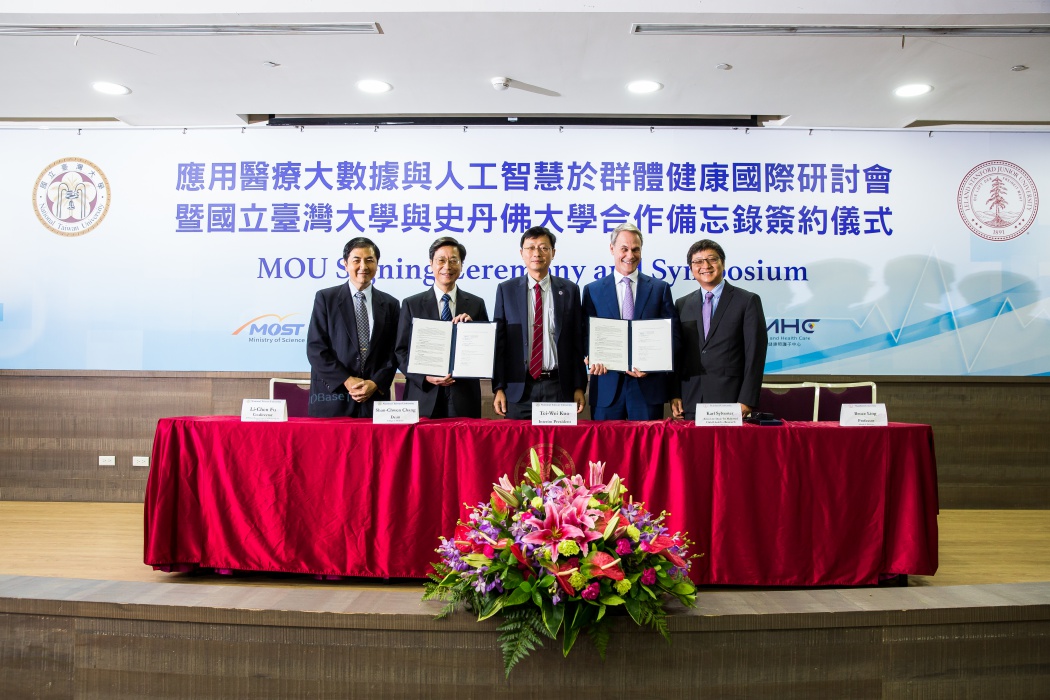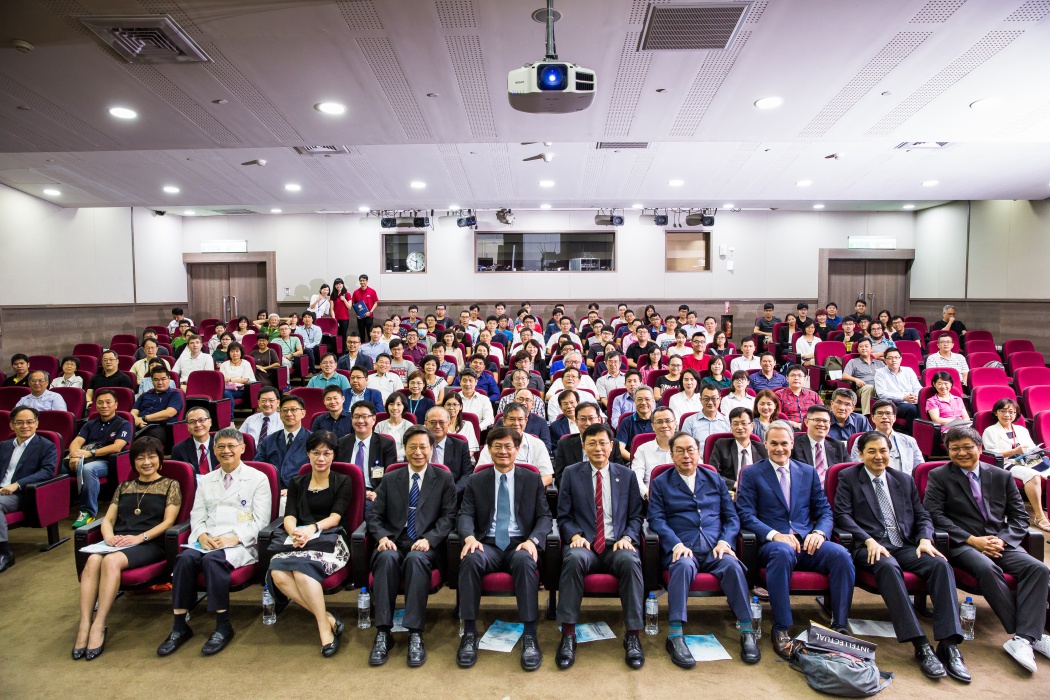
National Taiwan University has signed a Memorandum of Understanding (MOU) with Stanford University to pursue research collaboration on artificial intelligence (AI) in biotechnology and healthcare on September 17th. The partnership between the two universities is promoted by the All Vista Healthcare Sub-center, one of two sub-centers in the Joint Research Center founded by the Ministry of Science and Technology (MOST) of Taiwan. Dr. Yu-Chin Hsu, the Deputy Minister of MOST, presented to congratulate the signing ceremony. Dr. Tei-Wei-Kuo, the NTU President, Dr. Shan-Chwen Chang, the Dean of NTU College of Medicine, Dr. Li-Chen Fu, the Co-director of MOST AI Center, and Dr. Karl Sylvester, the Associate Dean of Maternal Child Stanford School of Medicine, signed the document to complete the ceremony.
By signing of this MOU, both parties will deepen the existing collaborations and develop partnership on AI in biotechnology and healthcare. In order to ensure that the collaboration is mutually beneficial and aligned with strategic intents of both sides, action items for the collaboration will be further discussed, which include, but not limited to, talent education, biotechnology programs for the development of AI-enabled technologies in medical, biological, and life science research, construction of medical data and information system and data warehouse, applications of AI in diagnostics and healthcare for high-risk patient groups, and other translational research and development. It is expected that NTU College of Medicine, NTU Hospital, and Stanford School of Medicine will collaborate to build up a research cluster of AI in biotechnology and medicine.
Founded in NTU by MOST, the All Vista Healthcare Sub-center specifically emphasizes on AI in biotechnology and medicine. The center is with strong intentions to promote this partnership not only because both sides have been sister schools for years with international collaborations and talent cultivation, but also because such a hot and multidisciplinary field might reach a milestone with revolution in biotechnology and smart healthcare through collaborations between the two top-notch schools in Taiwan and US.
A Symposium named “Application of Big Data and AI in Population Health” was held after the MOU signing ceremony and three talks were presented. Dr. Karl Sylvester’s talk “Metabolic Phenotyping-Measuring Health and Risk of Disease-the Newborn Experience” presented that his research group is developing metabolic phenotyping approach to provide measureable phenotypes and assess risks of acquired diseases during pregnancy and the newborn period, and in hope to predict disease and suggest prevention strategies in the future. Prof. Bruce Xuefeng Ling from Bio-X, Cancer Center, CHI, Stanford University, presented “Predictive/preemptive AI Solutions for Population Health”. Prof. Ling presented several approaches that his research group has been working on, including integration of big multi-omics datasets using AI to define the molecular profiles and relative health risk against population baseline, and analysis of population risks by integrating clinical information to risk stratify the population to allow preventive or targeted care. The last talk “Application of Big Data in Subhealthy Population: Chance and Challenges” was presented by Prof. Han-Mo Chiu, Clinical Professor, Department of Internal Medicine, and Chief of Health Management Center of NTU hospital. Prof. Chiu pointed out the unmet need to prevent non-communicable diseases (NCD), related with subhealthy group which is estimated as 70% of the general population, as it has caused more than 70% of mortality in the world. He believed that the analysis of big data from clinical information using AI could provide a powerful disease prediction model for primary and secondary prevention of NCD, while the main challenge is to overcome the constraints of research on “healthy population” by regulations such as the personal information act in Taiwan.


